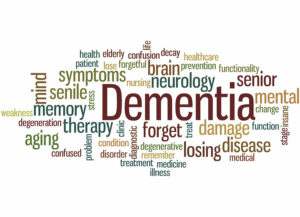Dementia-Related Behaviors: Tips for Handling Them Properly
If your elderly loved one has dementia, there will be certain behaviors that arise throughout the progression of the disease. With this being noted, there are some dementia-related behaviors that you may want to be aware of today. There are also some tips for how you may want to handle these issues, as well.
Aggression

24-Hour Home Care Memorial, TX: Dementia-Related Behaviors
One of the types of behaviors that you may want to learn more about when it comes to dementia is aggression. For example, your elderly loved one might start screaming because they are stressed or overwhelmed. However, they may not be able to express how they feel, so it may come out aggressively. If your elderly loved one is acting in an aggressive manner, do your best to think about what is happening during that time. See if you can pinpoint how they are feeling and try to resolve the situation. If the aggressiveness ever becomes too much, you can hire 24-hour home care providers to care for them instead. These providers are trained in handling dementia-related behaviors.
Confusion with Places or Times
Dementia does cause the patient to become confused with places and times. The progression of this symptom may start slowly, but it will get worse as time goes on. With this being said, as your elderly loved one becomes more and more confused, you may want to keep them home more often. If your elderly loved one is going to leave their house, make sure you or a 24-hour home care provider is with them. If they go out of the house on their own, it is very likely they will get lost, even if they were previously familiar with an area.
Issues with Poor Judgment
Your elderly loved one is going to have issues with poor judgment if they have dementia. This might not happen in the very early stages of the disease. However, as the disease gets worse, the symptom will, as well. One of the best ways to handle this issue is to remember that it isn’t your elderly loved one’s fault. If you start to notice this problem, it may be a good idea for you or someone else that your elderly loved one trusts to handle decision making. That way, your elderly loved one’s lifestyle can be maintained as well as possible.
Conclusion
There are numerous dementia-related behaviors that you may need to know about if your elderly loved one has this disease. Now that you know about these behaviors, you can have a better idea of how to handle them.
If you or an aging loved one are considering 24-Hour Home Care in Memorial, TX, contact the caring staff at Personal Caregiving Services at 832-564-0338. Providing Care in Houston, Bellaire, West University Place, Katy, and Sugar Land and the surrounding areas.
Sources
https://medlineplus.gov/ency/article/007428.htm
https://www.nia.nih.gov/health/coping-agitation-and-aggression-alzheimers-disease
- The Most Recommended Activities For Seniors Aging In Place - April 21, 2025
- Why Maintaining Flexibility Is So Important For Seniors - April 3, 2025
- Home Care Assistance Helps Seniors Manage Medical Appointments - March 19, 2025
